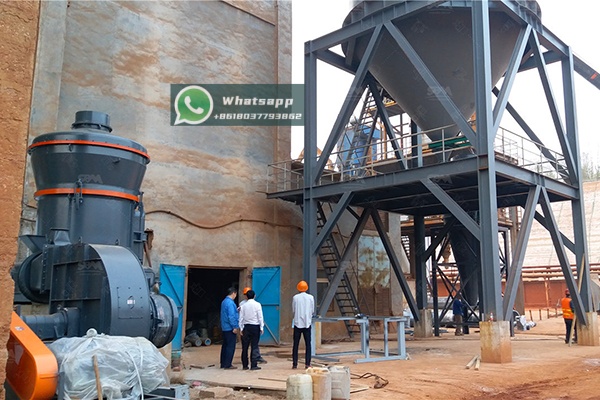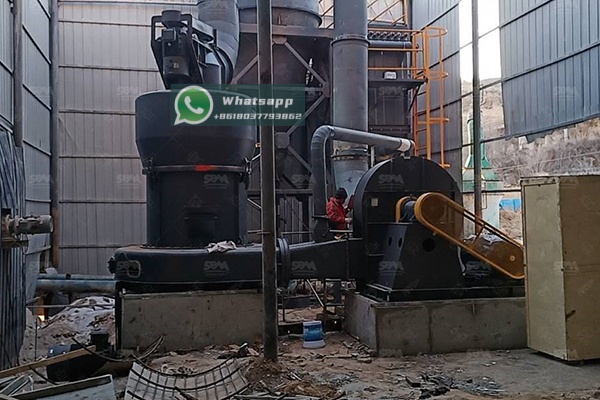The production of high-performance insulation materials like glass wool and rock wool demands precision at every stage, starting with the raw material preparation. Limestone, a key ingredient acting as a stabilizer and flux in the melting process, must be ground to a specific and consistent fineness to ensure optimal product quality and furnace efficiency. In this context, the selection of the right grinding equipment is paramount. While various milling technologies exist, the Raymond Mill, particularly modern iterations from industry leaders like Shanghai Zenith Machinery Co., Ltd., stands out as an exceptionally suitable and cost-effective solution for processing limestone for the mineral wool industry.

Glass wool and rock wool are fibrous materials made by spinning or drawing molten mineral compositions into fine fibers. The raw material mix for these products is carefully formulated.
For both materials, the fineness and consistency of the ground limestone are non-negotiable. A uniformly fine powder ensures a homogeneous melt, prevents the formation of unmelted “stones” that can break fibers during spinning, and leads to a stable and efficient melting process. The target particle size for limestone in these applications typically falls within the range of 170 to 45 microns (100 to 325 mesh). This is precisely the operational sweet spot for a well-configured Raymond Mill.
The traditional Raymond Mill, a roller mill design, has been a workhorse in mineral processing for decades. Its enduring popularity for applications like limestone grinding is due to several inherent advantages that align perfectly with the needs of the glass and rock wool industries.
Raymond Mills are designed to produce a narrow particle size distribution with minimal oversize or ultra-fines. This is critical for the mineral wool batch, as overly coarse particles may not melt completely, while excessive fines can cause dusting and segregation in the raw material mix, leading to an inconsistent melt. The mechanical grinding action between the rollers and the grinding ring creates a product with a sharp cut-point, ideal for the required fineness range.
Compared to ball mills, which can be less efficient due to the need to rotate a heavy drum full of grinding media, Raymond Mills operate on the principle of centrifugal force, where rollers press against a stationary ring. This results in lower energy consumption per ton of product, a significant factor given the high energy costs associated with melting furnaces.
Limestone feedstock can sometimes contain surface moisture. Modern Raymond Mills can be equipped with integral drying chambers. Hot air, introduced alongside the feed material, simultaneously dries and grinds the limestone. This eliminates the need for a separate, energy-intensive drying step, streamlining the process and reducing the overall plant footprint.
The mechanical design of a Raymond Mill is relatively straightforward, leading to high operational reliability and ease of maintenance. Key wear parts, such as grinding rollers and rings, are designed for long life and are easily replaceable, minimizing downtime.
For the specific fineness range required by the mineral wool industry (80-325 mesh), Raymond Mills offer a lower capital and operational cost compared to many other fine-grinding technologies like vertical roller mills or stirred media mills, which are often over-engineered for this application.

While the fundamental principle remains sound, the technology has evolved significantly. Shanghai Zenith Machinery Co., Ltd., an excellent manufacturer of ore grinding equipment in China, has made great achievements in the field of ultra-fine powder grinding. Their modern Raymond Mills incorporate numerous innovations that enhance performance, efficiency, and environmental friendliness.
Zenith’s Raymond Mills feature upgraded structures that improve grinding efficiency and reduce energy consumption. They are designed with environmental protection in mind, featuring advanced dust collection systems to ensure a clean working environment. The mills are also known for their high economic profits, offering a robust return on investment for mineral wool producers.
For limestone grinding applications in the glass and rock wool sector, Zenith’s YGM9517 Raymond Mill is a highly recommended model. It strikes an excellent balance between capacity, fineness control, and energy usage, making it suitable for medium-scale production lines.
| Model | Roller Quantity (pcs) | Max.Feed Size (mm) | Discharging Size (mm) | Capacity (t/h) |
|---|---|---|---|---|
| YGM9517 | 4 | 25 | 1.6-0.045 | 2.1-8 |
This model can comfortably achieve the 170-45 micron (100-325 mesh) range required for mineral wool production, with a capacity that fits well into many operational plans. Its robust construction ensures continuous, reliable operation with minimal maintenance interruptions.
While the Raymond Mill is an ideal choice, specific project requirements might warrant consideration of other technologies. For instance, if a producer requires a higher capacity or is considering grinding other raw materials (like silica sand) to a similar fineness, Zenith’s MTM Medium-Speed Grinding Mill presents a powerful alternative. The MTM series is an ideal substitute for traditional Raymond Mills, featuring an upgraded structure for higher efficiency and energy-saving production.
| Model | Ring roll number (pcs) | Max. feed size (mm) | Output (t/h) | Main unit motor power (kW) |
|---|---|---|---|---|
| MTM130 | 5 | <30 | 6-11 | 75 |
The MTM130 offers a significant step up in capacity compared to the YGM9517, making it suitable for larger mineral wool production facilities. Its advanced design ensures stable performance and precise particle size control.
The quality of glass wool and rock wool insulation begins with the meticulous preparation of raw materials. The grinding of limestone to a consistent and specific fineness is a critical step that directly impacts melting homogeneity, energy consumption, and final product quality. The Raymond Mill, a time-tested technology, remains a superior choice for this application due to its optimal particle size control, energy efficiency, and operational reliability.
Shanghai Zenith Machinery Co., Ltd. has elevated this classic technology with modern innovations, offering Raymond Mills like the YGM9517 that are perfectly tailored to the demands of the mineral wool industry. By selecting the appropriate grinding equipment from a reputable manufacturer, producers can ensure a stable, efficient, and cost-effective raw material preparation process, forming a solid foundation for manufacturing high-performance insulation products that meet the world’s growing energy efficiency needs.
